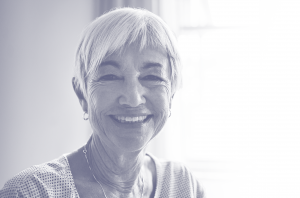– JUNE 2021 –
 Why we give more time and you get less stress
Why we give more time and you get less stress
From the moment we start working with someone new on our service, we go the extra mile in how we invest our time. Like detectives, we begin an extensive process of discovery to learn everything we can about the participant’s disability, how it impacts their daily life, and where their goals sit in the context of their daily living. We also connect with their closest family members to get a better understanding of the medical history and to hear different viewpoints for a well-rounded picture. In addition, we reach out to their GP to compile a list of the participant’s medications and check them against their illnesses and symptoms.
The difference time makes
While it takes longer initially to conduct such an in-depth process of discovery, it pays off long-term because we can work more effectively with the participant and we can anticipate potential challenges that might arise. As dependable practitioners, we genuinely care and do everything we can to help the people we support. As part of going above and beyond in this way, we want to make sure the participant, their family, their support coordinator, and all involved in their healthcare have a little stress as possible. Instead of a disjointed approach with each person involved in their care only knowing parts of the history, we build that full picture to help everyone.
How working with participants in their home reveals greater insights
The protocol followed in hospital to determine if someone is ready to return home is unable to factor in the difficulties the home environment could present. For example, we recently worked with an elderly lady who was able to walk 5 metres from her bed to the toilet in the hospital and was therefore considered safe to return home but this didn’t factor in climbing her stairs or reaching for items in the kitchen cupboard. On face value, this lady told us on our home visit that everything was fine and that she could get herself into bed unaided because she didn’t want to be put in a nursing home. Through our gentle discussion, it became apparent that she actually had been sleeping in her armchair each night. Doing so was putting more pain and pressure on her spine, giving her poor sleep and ultimately causing deterioration in her functional independence, particularly her balance.

Without taking the time to further investigate the issues at play, it would have been all too easy to prescribe exercises to improve her balance. However, we continued our dialogue and learnt that she didn’t want to sleep in her bed because she didn’t have the strength to reach up into her bedside lamp to turn it on and off. Without access to the light at night, she was at more risk of falling over. The two questions we regularly ask for our participants are: “How can I make this person’s life easier?”; and “What risks exist that they can’t see for themselves?”. In this case, we purchased a $5 touch light sensor and her sleep routine was immediately transformed.
Rushing with participants means things like this slip through the net and further health implications that could be prevented spiral as a result. If you would like your participant to receive the level of thorough care that we provide, we are taking new patients.
Please book a free 15-minute consultation with our team here at Active Edge Physio. Alternatively, complete the referral form online and we’ll be in touch within 24 hours (on week days) to explore the best way forward.